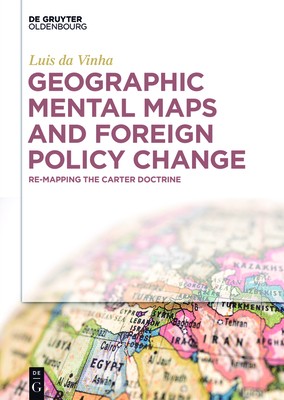
- We will send in 10–14 business days.
- Author: Luis da Vinha
- Publisher: Walter de Gruyter
- Year: 2017
- Pages: 326
- ISBN-10: 3110521644
- ISBN-13: 9783110521641
- Format: 17.5 x 24.4 x 2.3 cm, hardcover
- Language: English
- SAVE -10% with code: EXTRA
Reviews
Description
In recent years geographic mental maps have made a comeback into the spotlight of scholarly inquiry in the area of International Relations (IR), particularly Foreign Policy Analysis (FPA).
The book is framed within the mental map research agenda. It seeks to contribute and expand the theoretical and empirical development and application of geographic mental maps as an analytical concept for international politics. More precisely, it presents a theoretical framework for understanding how mental maps are employed in foreign policy decision-making and highlights the mechanisms involved in their transformation.
The theoretical framework presented in this book employs the latest conceptual and theoretical insight from numerous other scientific fields such as social psychology and organizational theory.
In order to test the theoretical propositions outlined in the initial chapters, the book assesses how the Carter Administration's changing mental maps impacted its Middle East policy. In other words, the book applies geographic mental maps as an analytical tool to explain the development of the Carter Doctrine.
The book is particularly targeted at academics, students, and professionals involved in the fields of Human Geography, IR, Political Geography, and FPA. The book will also be of interest to individuals interested in Political Science more generally. While the book has is academic in nature, its qualitative and holistic approach is accessible to all readers interested in geography and international politics.
Luis da Vinha, PhD, is Assistant Professor of Geography & Political Science at Valley City State University.
EXTRA 10 % discount with code: EXTRA
The promotion ends in 18d.06:07:25
The discount code is valid when purchasing from 10 €. Discounts do not stack.
- Author: Luis da Vinha
- Publisher: Walter de Gruyter
- Year: 2017
- Pages: 326
- ISBN-10: 3110521644
- ISBN-13: 9783110521641
- Format: 17.5 x 24.4 x 2.3 cm, hardcover
- Language: English English
In recent years geographic mental maps have made a comeback into the spotlight of scholarly inquiry in the area of International Relations (IR), particularly Foreign Policy Analysis (FPA).
The book is framed within the mental map research agenda. It seeks to contribute and expand the theoretical and empirical development and application of geographic mental maps as an analytical concept for international politics. More precisely, it presents a theoretical framework for understanding how mental maps are employed in foreign policy decision-making and highlights the mechanisms involved in their transformation.
The theoretical framework presented in this book employs the latest conceptual and theoretical insight from numerous other scientific fields such as social psychology and organizational theory.
In order to test the theoretical propositions outlined in the initial chapters, the book assesses how the Carter Administration's changing mental maps impacted its Middle East policy. In other words, the book applies geographic mental maps as an analytical tool to explain the development of the Carter Doctrine.
The book is particularly targeted at academics, students, and professionals involved in the fields of Human Geography, IR, Political Geography, and FPA. The book will also be of interest to individuals interested in Political Science more generally. While the book has is academic in nature, its qualitative and holistic approach is accessible to all readers interested in geography and international politics.
Luis da Vinha, PhD, is Assistant Professor of Geography & Political Science at Valley City State University.


Reviews